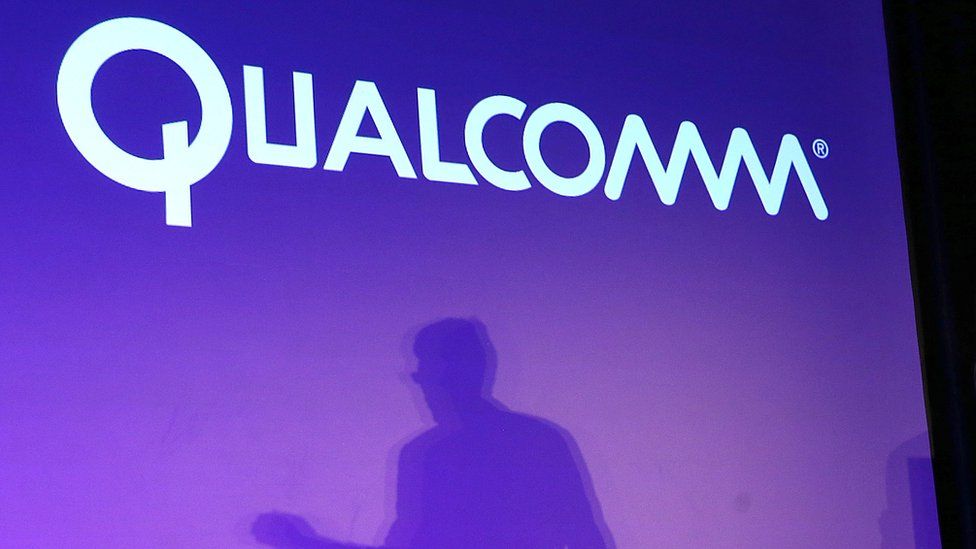Apple sues chip-maker Qualcomm in China
- Published

Apple has filed a lawsuit against Qualcomm in China seeking 1bn yuan (£115m) in damages, claiming the chip maker has abused its market position.
Apple has also filed a second case alleging Qualcomm had broken the terms of a deal covering how Apple could use technologies it had licensed.
Qualcomm said it was ready to defend its business practices in court.
The lawsuits come soon after US regulators sued Qualcomm, alleging that the firm was guilty of market abuse.
In its legal papers, Apple said Qualcomm was using its dominant position as a supplier of communication chips for mobile phones to squeeze more cash from firms that use its technologies.
In the second legal case, Apple said that Qualcomm had denied it access to chip technologies it was entitled to under the terms of an agreed licensing deal.
In a statement, Qualcomm said it had not yet seen all the details of the two cases.
"These filings by Apple's Chinese subsidiary are just part of Apple's efforts to find ways to pay less for Qualcomm's technology," said Don Rosenberg, head lawyer for Qualcomm.
He added that Apple was offered terms and conditions that were drawn up in 2015 following a ruling by Chinese trade regulators that dictated how Qualcomm should deal with companies keen to use its modem chips.
More than 100 Chinese firms signed up to these terms and conditions, he said, adding that Apple "refused to even consider them".
"Qualcomm is prepared to defend its business model anywhere in the world," said Mr Rosenberg.
Legal battles
Last week, the US Federal Trade Commission sued Qualcomm claiming it had abused its dominance in modem chips for mobile phones. The FTC said Qualcomm's use of low licensing fees was helping it to enforce its monopoly.
In response, Qualcomm said the FTC complaint was based on a "flawed legal theory" and "significant misconceptions" about the way the mobile industry worked.
Soon after the FTC filed its complaint, Apple followed up with its own legal action seeking $1bn (£793m) in rebates and accusing Qualcomm of overcharging it for chips.
Qualcomm said it planned to fight both legal cases.
The chip-maker has been hit with legal challenges and regulatory action around the world over the last few years.
In December 2016, South Korean regulators fined it 1.03trn won (£698m) for breaking competition laws.
In 2015, it paid a $975m (£775m) fine in China following an anti-trust probe. The European Commission has also accused it of anti-competitive practices.
- Published18 January 2017
- Published21 December 2016
- Published11 October 2016
- Published6 December 2016